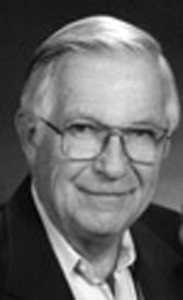(Note: This article was originally published in the December 18, 2011 edition of the Herald)
How do people get rich? In America, most people get rich at first by working hard and saving whatever they can. Eventually, they save enough to invest in stocks. If the economy is good, the value of their stock increases over time. This happens in two ways: The company issuing the stock declares a dividend and/or so many people want to buy the stock that its dollar value increases.
Let’s say, for instance, someone saved enough to buy 100 shares of Google stock in August of 2004 at $85 per share ($8,500). Today the same 100 shares of stock would be worth $62,500. That’s an 800 percent profit in seven years!
This is a very simplified explanation, of course. In real life, it’s not that simple. Right now, rich people are worried because the federal and many state governments are threatening to raise taxes, especially on things like stock dividends. In times like these, rich people take their money out of the stock market and invest it in municipal bonds or U.S. Treasury notes because the interest earned on government bonds is not taxable.
Another way rich people get out of paying taxes is to sell stock at a loss and then deduct the loss from their income tax.
The problem with all these tax-evasion strategies is it deprives private companies of the investment capital they need to grow their business and hire more workers. It also reduces the tax receipts the government needs to pay for entitlement programs like Medicare and Medicaid. That’s why many Americans who are not rich (the so-called “99 percent”) are very angry at rich people (the so-called “one percent”) and call rich people selfish and greedy.
In fact, though, most rich people are just like everybody else. The only real difference is rich people don’t spend money they don’t have on things they don’t need. This is not greed but “common sense.”
Sadly, we now have a president, Senate majority and major political party that don’t believe in common sense. Instead, they believe in “spreading the wealth around.” That’s why Senator Barney Frank ordered big banks and mortgage lenders like Freddy Mac and Fanny Mae to issue lots of “sub-prime” mortgages so poor people could become home-owners.
That’s also why, under the direction of Obama appointee Cass Sunstein, unelected federal government agencies like the EPA and the NLRB have made hundreds of new regulations to restrict private enterprise. According to the Heritage Foundation, these new regulations cost the taxpayer $40 billion.
As the Wall Street Journal says in its lead editorial for December 14, “Anyone who thinks this has minimal impact on business has never been in business.”







Leave a Reply